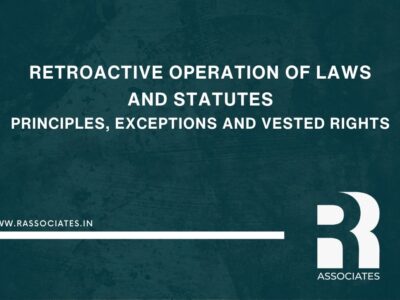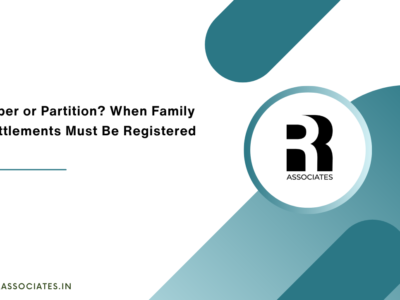
Jurisdictional Challenges under CPC: Emerging Trends in Forum Shopping and Judicial Scrutiny
In India, the Code of Civil Procedure (CPC) provides essential rules on jurisdiction, particularly through Sections 9 to 20. These form the core legal framework determining where a civil suit may be filed. However, recent years have seen a surge in forum shopping, where litigants choose courts based on favourable outcomes rather than legitimate territorial links. Delhi, being the hub of intellectual property and commercial litigation, frequently witnesses such tactics. This article examines emerging trends, judicial scrutiny, and the enforceability of exclusive jurisdiction clauses in contracts, especially in Delhi-centric disputes.
1. The CPC Framework: Sections 9–20
- Section 9: Establishes that every civil court has authority to hear civil suits unless explicitly ousted. It anchors the overall jurisdictional ambit.
- Section 11: Enables courts to decline jurisdiction when a binding agreement provides for an alternate forum.
- Section 20: Defines territorial jurisdiction—an action can be initiated where the defendant resides, conducts business, or where the cause of action arises.
- Section 19: Clarifies jurisdiction in cases with multiple defendants.
- Sections 12–18: Governs jurisdiction for specialized matters—e.g., immovable property, specific remedies, temporary injunctions.
Sections 9 and 20 together aim to ensure fairness and accessibility, which are especially significant for defendants in distant jurisdictions. Delhi courts, frequently chosen for their efficiency and plaintiff-friendly reputation, have become forum-shopping hotspots.
2. Forum Shopping: Emerging Trends and Delhi’s Role
Forum shopping occurs when litigants strategically file in courts perceived to be more advantageous, such as those offering faster resolutions or favourable rulings. Delhi, known for its accelerated delivery in intellectual property and commercial disputes, attracts litigants from across India, sometimes with tenuous local nexus.
Judicial pushback has been growing:
- The Supreme Court condemned forum shopping, introducing the “functional test”: Is the case filed for convenience or judicial advantage?
- Ex CJI DY Chandrachud recently warned litigants against using Delhi courts purely for strategic advantage.
- High Courts in Kerala and elsewhere are scrutinizing jurisdictional assertions, labelling opportunistic filings as “forum shopping”.
3. Conflicting Jurisdiction Clauses: Contractual Strategies
Contracts often include exclusive jurisdiction clauses, specifying a chosen forum—e.g., “courts at New Delhi only.” These clauses are common in commercial and employment agreements.
Key legal principles in Delhi:
- Sections 23 & 28 of the Indian Contract Act allow contractual jurisdiction choice only if it does not wholly deny access to justice.
- The nominated court must already have jurisdiction under Section 20 CPC—cannot add jurisdiction de novo.
4. Strategic Takeaways for Delhi Contracts
For parties drafting contracts governed in or referencing Delhi:
- Drafting clarity is essential: use unequivocal language (“exclusive”) and link the clause to a place where jurisdiction under Section 20 is valid.
- Assess nexus: Confirm that contracts have substantive connections to the agreed forum—e.g., place of business, location of performance.
- Consider enforceability: Exclusive clauses survive legal scrutiny—but only if they don’t violate Section 28 or aim to entirely bar remedy.
- Monitor jurisprudence: Delhi’s evolving stance on arbitration seat vs. jurisdiction clause interplay highlights the importance of precision in dispute clauses.
Conclusion
India’s CPC delivers a robust framework for territorial jurisdiction through Sections 9–20. However, rising forum shopping—especially in Delhi—has prompted courts to adopt stricter judicial scrutiny. Exclusive jurisdiction clauses in contracts remain respected under CPC and Indian Contract Act, provided they are clear, enforceable, and grounded in statutory jurisdiction.
Frequently Asked Questions
1. What is forum shopping in civil cases?
Forum shopping is when a party files a case in a court perceived to be more favourable, even if that court has only a minimal connection to the dispute.
2. Can parties choose a specific court in a contract?
Yes, parties can agree on an exclusive jurisdiction clause, but the chosen court must have jurisdiction under Section 20 CPC.
3. Are jurisdiction clauses in contracts always enforceable?
They are generally enforceable if the language is clear and the selected court has legal jurisdiction under the CPC.
4. Can I file a case in Delhi even if the contract was signed elsewhere?
Only if Delhi has a legal nexus—like a place of business, performance, or part of the cause of action—under Section 20 CPC.
5. Can courts reject a case for forum shopping?
Yes, courts may dismiss or transfer cases if they find the filing is strategic and lacks a genuine territorial connection




